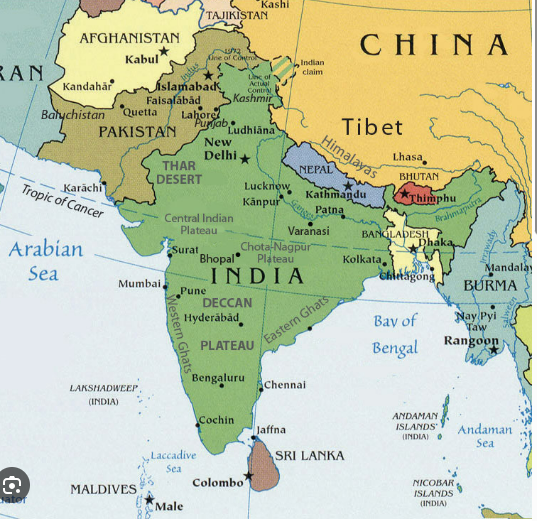Bangladesh-India relations have plunged to a new low, driven by a series of political and diplomatic challenges that have soured the once “friendly” ties between the two neighbours, especially those developed during the tenure of the fallen Prime Minister Sheikh Hasina.
The most recent development that has exacerbated tensions came when India, on Wednesday, refused Bangladesh’s request to halt the political activities of Hasina’s party, the Awami League, in West Bengal. This, along with other measures, has created an increasingly difficult environment for diplomatic reconciliation.
Notably, Hasina herself, along with several hundred leaders of the party, sought refuge in India after a student-led mass uprising toppled her regime nearly a year ago. The current strain in relations began with her downfall.
Following the collapse of Hasina’s government, Bangladesh plunged into chaos for a few days, culminating in the emergence of the Professor Yunus-led interim government. India’s actions since then have increasingly been perceived as unfavourable to the new administration, significantly eroding the “goodwill” that had been built over decades.
One of the most significant flashpoints has been India’s refusal to cease the political activities of the Awami League in West Bengal. Bangladesh’s formal request to India to curb these activities was met with firm refusal. India’s stance is seen by many as a politically charged move that further complicates Bangladesh’s diplomatic efforts.
Adding fuel to the fire, India has actively provided shelter to key leaders of the fallen regime, which is interpreted as indirect support for those seeking to challenge the current interim government. This development has raised significant concerns in Dhaka, as Hasina and her party’s actions are accused of committing crimes against humanity for killing more than 1,000 protesters during the uprising.
India’s asylum to these leaders has further complicated the already tense situation, as New Delhi continues to ignore Bangladesh’s calls for the deportation of Hasina to face charges related to crimes against humanity during the uprising.
To add to the diplomatic turmoil, the issue of trade and economic cooperation has also taken a hit. India, historically one of Bangladesh’s largest trade partners, has significantly reduced business exchanges. This shift in economic relations is seen as part of India’s broader frustration with the political changes in Bangladesh. The once-thriving economic partnership has taken a backseat to growing political tensions.
Furthermore, the ongoing issue of border management remains a major point of contention. The Indian Border Security Force (BSF) continues to push Bangla-speaking people back into Bangladesh, sparking outrage in Dhaka. Allegations of forced migration and human rights abuses along the border by the BSF have intensified the animosity between the two nations.
Despite these provocations, Bangladesh has consistently expressed its desire to improve ties. The Yunus-led interim government has made several diplomatic overtures, emphasizing the importance of cooperation in areas like trade, border security, and regional stability. However, India’s continued refusal to engage meaningfully and its stance on key political issues, such as the deportation of Hasina and the ongoing border pushbacks, have created an impasse that makes a thaw in relations unlikely in the immediate future.
Looking ahead, the prospects for improving relations between Bangladesh and India remain dim. India’s refusal to halt Awami League activities, its support for the party, and the deportation request for Hasina over alleged crimes against humanity indicate a lack of willingness to restore friendly ties. As long as these issues remain unresolved, Bangladesh’s diplomatic efforts to reconcile may continue to be thwarted, with the relationship likely to remain cold in the coming days.


